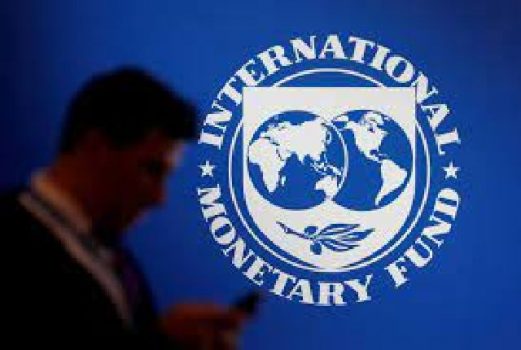IMF ready to assist countries hit by Russia-Ukraine conflict
The International Monetary Fund stands ready to assist countries that may be affected by any spillover effects from a Russia-Ukraine conflict and sanctions imposed by Western governments, IMF Managing Director Kristalina Georgieva said on Wednesday.
Georgieva told a Washington Post Live event that sanctions would inevitably interrupt some financial transactions and financial system functioning, especially if sanctions restrict Russian access to the SWIFT financial transaction network.
“If we are in a situation in which there are spillover impacts that require more engagement from the IMF for other countries, of course we would be there. We have still about $700 billion lending capacity,” Georgieva said.
The IMF chief said she hoped for a diplomatic solution to the crisis for the sake of the Ukrainian people and the necessity to sustain global economic recovery.
The crisis has elevated energy prices, especially in Europe, and interruption of grain supplies from Ukraine could add upward pressures to food prices. Gita Gopinath, IMF first deputy managing director, said last week an escalated Russia-Ukraine conflict would keep inflation higher for longer.
Georgieva said the IMF has about $2.2 billion available in its extended loan program with Ukraine that can be disbursed between now and June. Ukraine received an initial tranche of $700 million in November.
“Under this program. Ukraine has been acting responsibly to build up reserves, it has also benefited from the Special Drawing Rights allocation that we have done last year. And in that sense, we see our avenue to support specifically the Ukrainian economy quite clear over the next month,” she said.
The IMF will help assess the impact from any conflicts and make prudent policy recommendations to member countries as the crisis unfolds, she said.
Georgieva, who grew up in Bulgaria during the Cold War, said her brother was visiting family in Ukraine and reported empty store shelves and anxious citizens, reminiscent of that era.
“So when we talk about geopolitical tensions, we need to remember it is ordinary people who bear the brunt of their impact,” she said. “And if we can prevent a repeat of what we know was painful for so many, hundreds of millions of people, that would be a very noble objective.”

